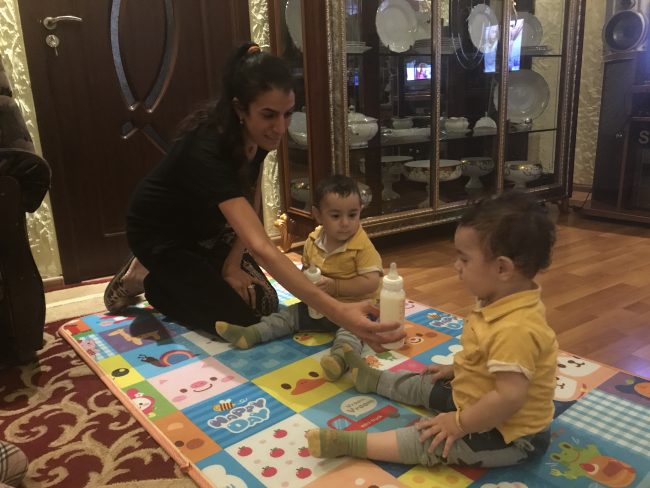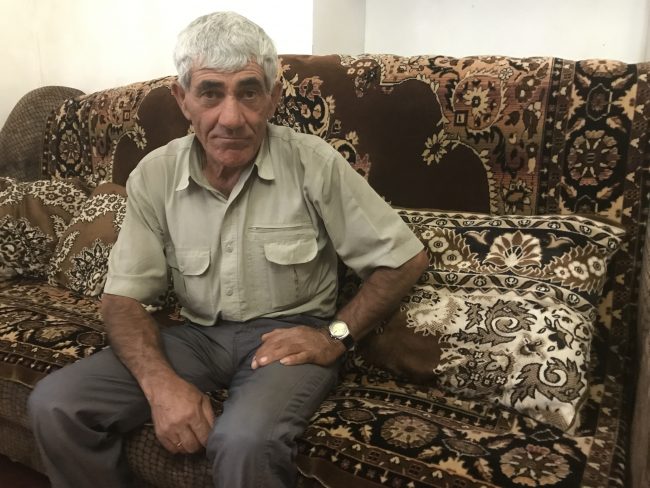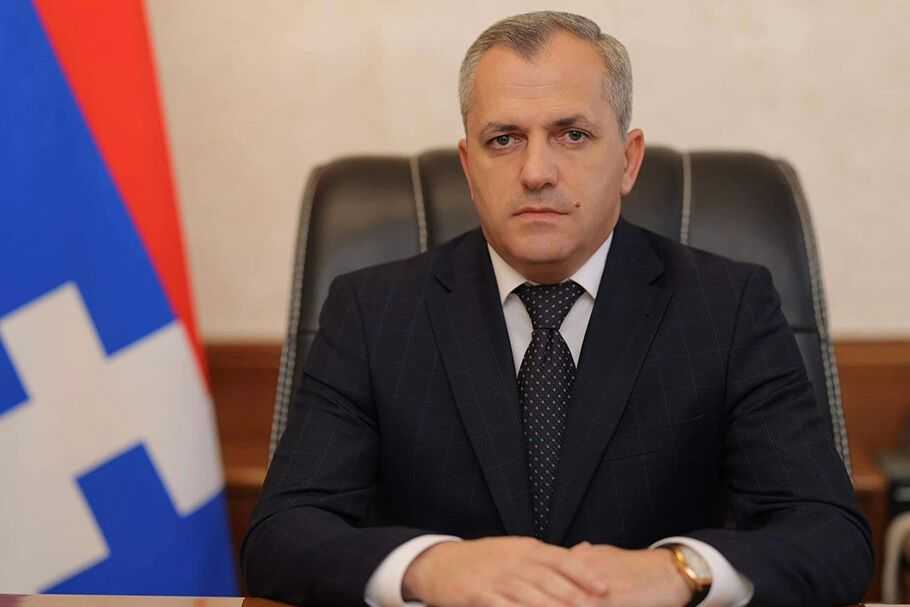

 With Armenia’s soaring labour migration rates, working-age men have become a rare sight in many villages. Their wives have grown used to seeing them only once a year, if at all, and raising the children alone isn’t only a matter of necessity — it has become a fact of life.
With Armenia’s soaring labour migration rates, working-age men have become a rare sight in many villages. Their wives have grown used to seeing them only once a year, if at all, and raising the children alone isn’t only a matter of necessity — it has become a fact of life.
According to official statistics, the permanent population of Armenia has dropped by 30,700 in the last 2.5 years, falling below 3 million in July 2017. The regions most affected by migration are Shirak, Lori, Gegharkunik, and Kotayk. The highest number of people has left the Shirak Province in the northwest of Armenia. In almost every village there are men who work abroad. They only return home in December and leave in January.
A village without men
Dzitankov village in Shirak region is located 105 km from Yerevan. The village is known for its cold climate and having practically no men living there. When local men become adults, they go to work abroad, staying there for about 11 months each year.
‘Khabarovsk, Kemerovo, Novosibirsk, Yakutia for 7–8 years, and the last ten years in Moscow’, — 58-year-old Misak Manukyan, a resident of Dzitankov lists the cities where he worked and lived for three decades.
‘For the first time I went to work abroad [outside of the Armenian SSR] was at the age of 21. I went in the middle of January and returned in mid-December to greet the New Year with my family. Since then, I’ve lived with the schedule of khopanchi [a modern slang word describing those who go to work in other countries]. There is no family in our village whose man aren’t abroad. In our lives, we adapt everything to the work abroad’, Manukyan told OC Media.
There are 400 families living in Dzitankov. Local residents claim that every single man in working age works abroad, mostly in Russia.
Winter weddings
The fact that the men of Dzitankov prefer Russia for the place of their work finds evidence in statistics. According the UN data, the majority of migrants from Armenia — about 56% — are in the Russian Federation.
According to the Armenian Central Bank, more than 80% of the $41.6 million sent annually to Armenia in remittances comes from Russia.
Often, boys first leave for Russia at the age of 15–16 years old, mostly to work on construction sites. They return at the age of 18 to undergo compulsory military service. When they are discharged, they leave again.
‘Because of the work abroad, a custom has been formed in our village, according to which we make our weddings exclusively in November, December, or January. It depends on working plans. The boy chooses a bride when he comes to his homeland in January or gets acquainted with the girl by somebody’s advice and then communicates with the girl from the distance. Nowadays, there are thousands of ways of communication. Then, when planning a wedding, the boy comes home earlier than the group he left [abroad] with, in order to manage to get married and go back again. For example, my son’s wedding was held on 8 November’, says Misak Manukyan.
Misak, Misak’s son and his father-in-law work together. They decided the wedding day together and told their families that they were coming to quickly organise the wedding and return abroad soon after.
‘As a joke, I told everybody that if my son doesn’t manage to finish the job quickly, I will go to Armenia and hold the wedding without the groom. But he managed, we were happy and enjoyed the wedding’, Misak recalls.
Misak’s son has honoured another unwritten law of khopanchi: before leaving for his work, his wife was already pregnant.
‘My grandchild was born in August. Look, if the weddings are held in the autumn–winter period, then the end of the summer and late autumn is the time for giving birth in the village, well, nine months after the wedding’, says Misak.

The seasonal children
‘We got married in January 2016, according to the schedule of our khopanchis’, says 22-year-old Armine Pinoyan. ‘I lived with my husband for five months. I was pregnant when he left for work abroad. We haven’t met again yet.’
Armine’s story is similar to the stories of many brides of Dzitankov.
The wedding was luxurious, paid for with the money earned abroad on construction sites. She has been living with her husband only for a couple of days, during which she managed to feel the joy of family life and get pregnant. Then, she had to see her husband leave to work abroad and feel the joy of becoming a parent without her husband.
‘I gave birth to twin boys 11 months ago. My miracles — Gagik and Garik — were born in November [2016]. They and my husband have not met yet. My husband has not had time to come to Armenia’, says Armine and adds that as her husband stayed with her more time than planned and left for work not in January 2016, immediately after the wedding as accepted in the village, but in May, he could not come for the New Year.
‘He promised that this year we will celebrate the holidays together. I look forward to his arrival. He is also impatient, as he is already a parent, has two sons and has not seen them yet’, says Armine.
Armine’s house stands out with its rich design and good furnishing. She says that her father-in-law, husband, and brother-in-law all work abroad. Each man earns about $1,000 a month, the majority of which is sent to Armenia. Armine’s mother-in-law takes care of the house and looks after the bride and the grandchildren.
‘We live very well, we do not think about leaving the country yet. My children are small, the men there live in groups [in same flats], the living conditions are not so comfortable. It is better to wait for my husband at home’, says Armine.
The planned generation
Like Armine, many local brides do not want to leave Armenia. From childhood, seeing the lives of their mothers and relatives, they put up with the idea that if they get married with a migrant worker, they will live apart from their husbands for a long time and will meet them only during the holidays.
Dzitankov is not the only such village in the Shirak Province. In almost every nearby village, the image is similar: men go to work abroad, come once a year, get married to prolong the family name, then rush back to work.
‘We married five years ago in December but we cannot have a baby. At first I thought we spent too short time together and I didn’t manage to get pregnant. In order to rule out any illness, my mother-in-law accompanied me to get examined and the doctor told me that I had no [health] problems and could become a mother. Last year, my husband went through the tests and found out that he had a problem. Now we are going to go through with artificial fertilisation. I’m conducting relevant examinations, my organism is getting ready for the procedure in December. We will donor sperm, but only my husband and I know about it’, says Karine (the name is changed), a resident of one of the villages in the Shirak Province.
Karine is getting ready for maternity at the Perinatology, Obstetrics, and Gynaecology Hospital in Yerevan. They have decided to take that step in December 2016.
‘We need a child, but we do not want people to know that it was conceived artificially. In December, when my husband comes, we will go through with the fertilisation, and after a month it will be clear whether I’m pregnant or not. He may leave in January as usual. I, like all the brides, will see my husband off, will stay with my mother-in-law, and enjoy my pregnancy. I’m not worse than anyone, I also want to become a mother like the brides of our village, to get pregnant in winter, give birth in autumn’, Karine says half jokingly, half seriously, thinking that it is the right family model with a husband working abroad and a child being raised by mother alone.
However, the government of Armenia is worried about the problem of ‘partitioned families’. With the support of the global International Organisation for Migration, the government of Armenia has developed a 2016–2018 national programme to improve the demographic situation, hoping to gradually reduce the soaring migration rates. The programme so far includes providing affordable housing to young families, with state-funded nanny services being discussed.
[Read on OC Media: The manless villages of Lake Sevan]









